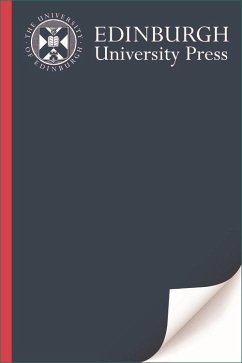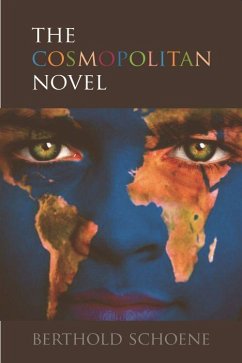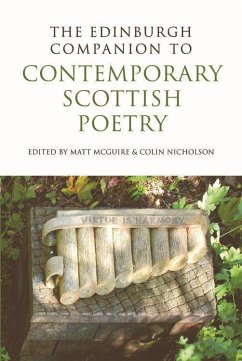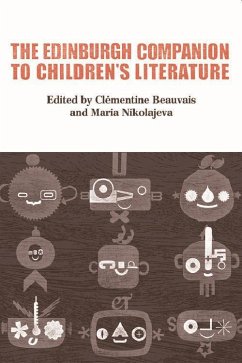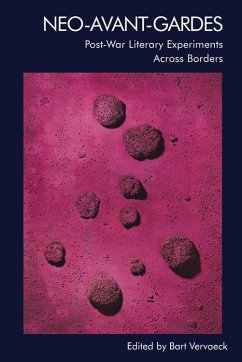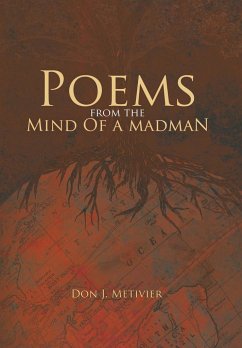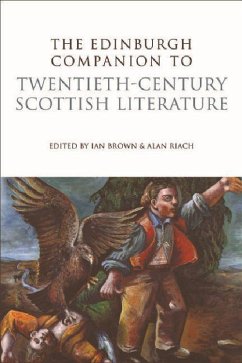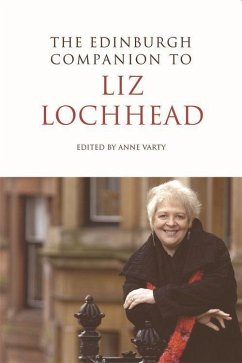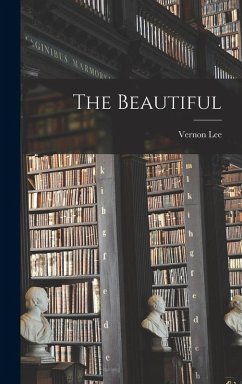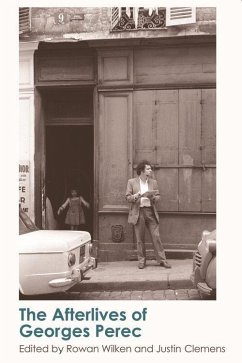
The Edinburgh Companion to Robert Louis Stevenson
Versandkostenfrei!
Versandfertig in über 4 Wochen
103,99 €
inkl. MwSt.
Weitere Ausgaben:

PAYBACK Punkte
52 °P sammeln!
By taking into account Robert Louis Stevenson's extraordinary thematic and generic diversity, as well as his impressive geographical range, this collection is the first anthology to situate Stevenson within a detailed social, political, and literary context. Essays explore the author's relationship with late-nineteenth-century publishing, psychology, travel, colonialism, and the emergence of modernism. Focusing on changes in Stevenson's publishing and cultural life during the second half of the nineteenth century, this anthology highlights Stevenson's investment in a theory of literature and realism and his interest in the unconscious and conceptions of childhood. Contributors also trace Stevenson's literary contexts from Scotland to the South Pacific, showing him to be key to the understanding of globalization and cultural heterogeneity in the late nineteenth century.
Edinburgh Companions to Scottish Literature Series Editors: Ian Brown & Thomas Owen Clancy ADD STANDARD SERIES COVER BLURB The Edinburgh Companion to Robert Louis Stevenson Edited by Penny Fielding This wide-ranging collection is the first to set Robert Louis Stevenson in detailed social, political and literary contexts. The book takes account of both Stevenson's extraordinary thematic and generic diversity and his geographical range. The chapters explore his relation to late nineteenth-century publishing, psychology, travel, the colonial world, and the emergence of modernism in prose and poetry. Through the pivotal figure of Stevenson, the collection explores how literary publishing and cultural life changed across the second half of the nineteenth century. Stevenson emerges as a complex writer, author both of hugely popular boys' stories and of seminally important adult novels, as well as the literary figure who debated with Henry James the theory of fiction and the nature of realism. The collection shows how interest in the unconscious and changes in the conception of childhood demand that we re-evaluate our ideas of his writing. Individual essays by international experts trace Stevenson' literary contexts from Scotland to the South Pacific, and show him to be one of the key writers for understanding the growing sense of globalisation and cultural heterogeneity in the late nineteenth century. Key Features * Sets Stevenson in his literary, scientific and political contexts * Covers a broad range of Stevenson's fiction and non-fiction * Written by a team of international scholars * Includes an authoritative introduction and select bibliography Penny Fielding teaches English and Scottish Literature at the University of Edinburgh. She has published widely on nineteenth-century Scottish fiction and is a General Editor of The New Edinburgh Edition of the Collected Works of Robert Louis Stevenson.




